Filter by

Conservation Research, Policy and Practice
Conservation research is essential for advancing knowledge, but to make an impact, scientific evidence must influence conservation policies, decision-making and practice. This raises a multitude of challenges. How should evidence be collated and presented to policy-makers to maximise its impact? How can effective collaboration between conservation scientists and decision-makers be established? …
- Edition
- -
- ISBN/ISSN
- 9781108638210
- Collation
- -
- Series Title
- -
- Call Number
- 333.72 SUT c
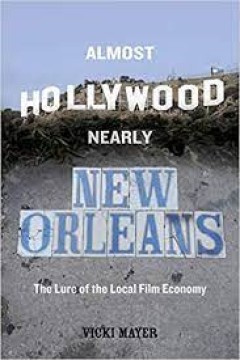
Almost Hollywood, Nearly New Orleans : The Lure of the Local Film Economy
Early in the twenty-first century, Louisiana, one of the poorest states in the United States, redirected millions in tax dollars from the public coffers in an effort to become the top location site globally for the production of Hollywood films and television series. Why would lawmakers support such a policy? Why would citizens accept the policy’s uncomfortable effects on their economy and cu…
- Edition
- -
- ISBN/ISSN
- 9780520967175
- Collation
- -
- Series Title
- -
- Call Number
- 791.43 MAY a

Germany’s Role in the Euro Crisis
This book analyses Germany’s role in the euro crisis. Based on the perception of Berlin as the emerging capital of the European Union, the author investigates three interrelated issues: Did the German policy approach of imposing austerity programs on countries in the middle of a deep recession contribute to the successful management of the euro crisis? Does Germany extend its sway over its Eu…
- Edition
- -
- ISBN/ISSN
- 978-3-319-20513-7
- Collation
- VII, 146
- Series Title
- -
- Call Number
- 341.324 MEI g
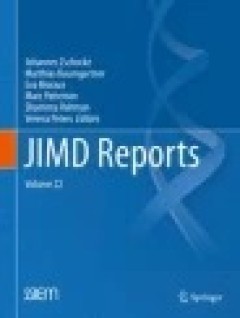
JIMD Reports, Volume 22
JIMD Reports publishes case and short research reports in the area of inherited metabolic disorders. Case reports highlight some unusual or previously unrecorded feature relevant to the disorder or serve as an important reminder of clinical or biochemical features of a Mendelian disorder.
- Edition
- -
- ISBN/ISSN
- 978-3-662-47453-2
- Collation
- -
- Series Title
- -
- Call Number
- -
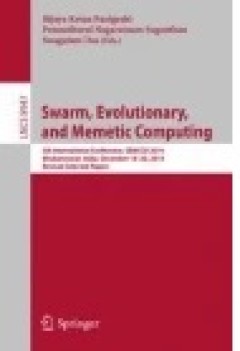
Swarm, Evolutionary, and Memetic Computing
This volume constitutes the thoroughly refereed post-conference proceedings of the 5th International Conference on Swarm, Evolutionary, and Memetic Computing, SEMCCO 2014, held in Bhubaneswar, India, in December 2014.
- Edition
- -
- ISBN/ISSN
- 978-3-319-20294-5
- Collation
- XVII, 881
- Series Title
- Theoretical Computer Science and General Issues
- Call Number
- -
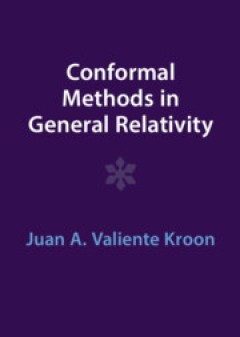
Conformal Methods in General Relativity
First and foremost, I would like to acknowledge the influence that Helmut Friedrich had in the development of my understanding of the theory of the conformal Einstein field equations. He has been an inexhaustible source of knowledge and insights. I also would like to acknowledge the role that Robert Beig, Sergio Dain and Malcolm MacCallum have played in shaping complementary perspectives on t…
- Edition
- -
- ISBN/ISSN
- 9781009291309
- Collation
- -
- Series Title
- -
- Call Number
- 512.1 KRO c

Digital Foundations : Introduction to Media Design with the Adobe Creative Cloud
Digital Foundations uses formal exercises of the Bauhaus to teach the Adobe Creative Suite. All students of digital design and production—whether learning in a classroom or on their own—need to understand the basic principles of design in order to implement them using current software. Far too often design is left out of books that teach software for the trade and academic markets. Conseque…
- Edition
- Revised Edition
- ISBN/ISSN
- -
- Collation
- -
- Series Title
- -
- Call Number
- 302.23 BUR d

Swallowing – Physiology, Disorders, Diagnosis and Therapy
Swallowing difficulty or dysphagia is a common disorder and affects all age groups from the newborn to the elderly. Several medical conditions like lack of dentition, gastroesophageal reflux disease, eosinophilic esophagitis, cardiomegaly and strokes can cause dysphagia. It can also follow head -neck surgeries. It is important to diagnose and treat dysphagia, otherwise it can lead to malnutriti…
- Edition
- -
- ISBN/ISSN
- 978-81-322-2419-8
- Collation
- XIII, 218
- Series Title
- -
- Call Number
- -

Ethical Engineering for International Development and Environmental Sustainab…
Ensuring that their work has a positive influence on society is a responsibility and a privilege for engineers, but also a considerable challenge. This book addresses the ways in which engineers meet this challenge, working from the assumption that for a project to be truly ethical both the undertaking itself and its implementation must be ethically sound. The contributors discuss varied to…
- Edition
- -
- ISBN/ISSN
- 978-1-4471-6618-4
- Collation
- 28 b/w illustrations, 12 illustrations in colour
- Series Title
- -
- Call Number
- -
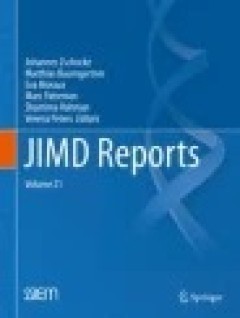
JIMD Reports, Volume 21
JIMD Reports publishes case and short research reports in the area of inherited metabolic disorders. Case reports highlight some unusual or previously unrecorded feature relevant to the disorder, or serve as an important reminder of clinical or biochemical features of a Mendelian disorder.
- Edition
- -
- ISBN/ISSN
- 978-3-662-47172-2
- Collation
- -
- Series Title
- -
- Call Number
- -
 Computer Science, Information & General Works
Computer Science, Information & General Works  Philosophy & Psychology
Philosophy & Psychology  Religion
Religion  Social Sciences
Social Sciences  Language
Language  Pure Science
Pure Science  Applied Sciences
Applied Sciences  Art & Recreation
Art & Recreation  Literature
Literature  History & Geography
History & Geography